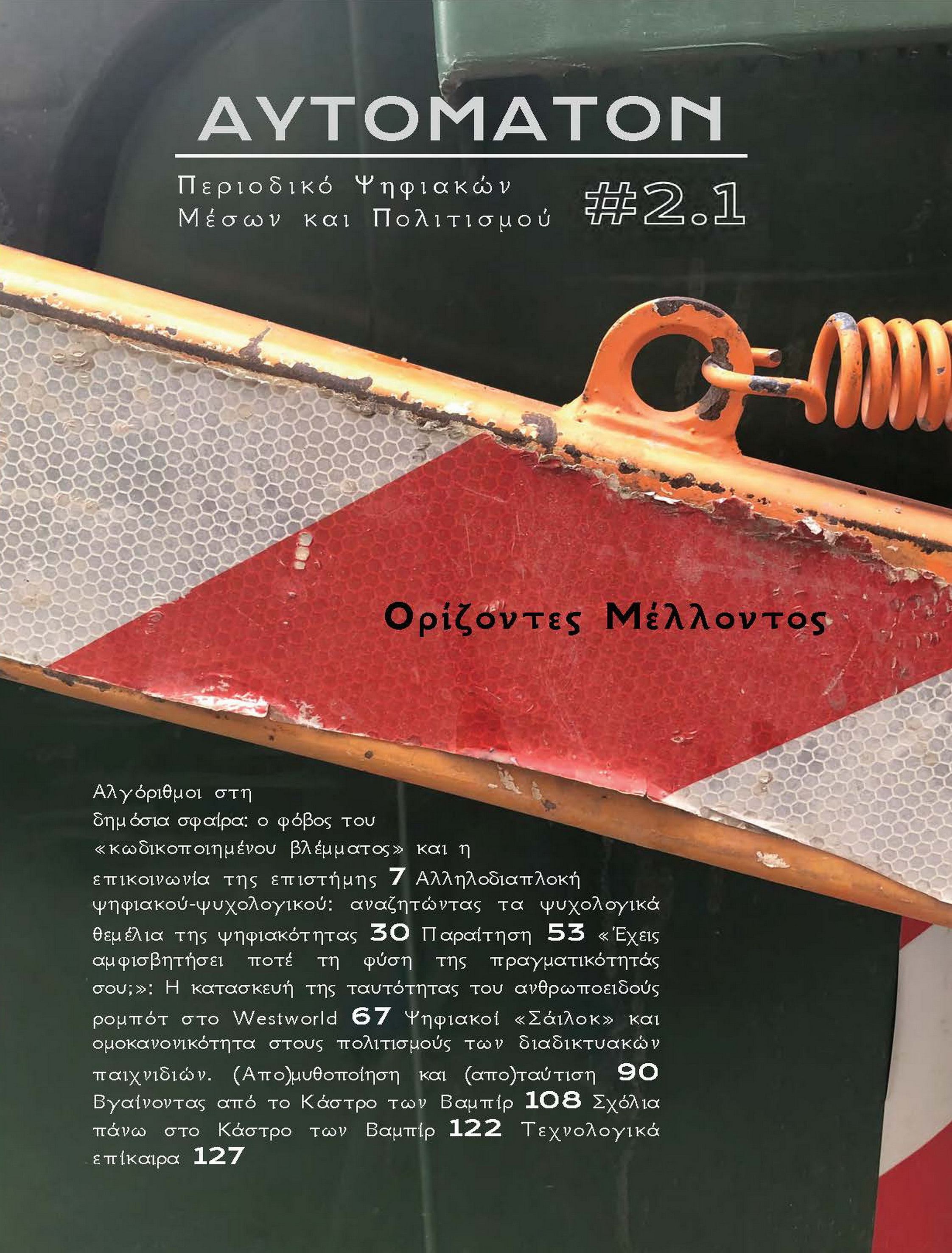Ψηφιακοί «Σάϊλοκ» και ομοκανονικότητα στους πολιτισμούς των διαδικτυακών παιχνιδιών (Απο)μυθοποίηση και (απο)ταύτιση

Περίληψη
Κατά πόσο οι διαδικτυακοί τόποι αποτελούν χώρους αντιπροσώπευσης και ισότιμης έκφρασης της σεξουαλικής διαφοράς κατασκευασμένους από «εμάς» για «εμάς»; Παρά την πεποίθηση ότι η συμμετοχικότητα των τεχνοπολιτισμών διαμορφώνει συνθήκες συλλογικών και ατομικών διεκδικήσεων, η αλγοριθμική επιμέλεια οριοθετεί την κουήρ ταυτότητα και επιβάλλει μια διαμεσολαβημένη αναπαράσταση που φέρει εγγράφουσες ετεροκανονικές αξίες. Τα ιδεολογικά κατασκευασμένα ψηφιακά περιβάλλοντα επιτρέπουν τη διείσδυση κανονιστικών κοινωνικών προσταγών, διαμορφώνοντας συμπεριφοριστικούς κανόνες επιτέλεσης της κουήρ ταυτότητας. Τα «πολύχρωμα» δρώμενα και σύμβολα της ΛΟΑΤΚΙ+ κοινότητας γίνονται αντικείμενα εμπορευματοποίησης από τις εταιρείες παραγωγής παιχνιδιών, οι οποίες καιροσκοπικά, με συμπεριφορές «Σάιλοκ»2, εγκωμιάζουν το κουήρ αλλά δεν το ενσωματώνουν ουσιαστικά. Η κριτική διερεύνηση των καπιταλιστικών πρακτικών στα ψηφιακά παιχνίδια συμβάλλει στην αποδόμηση της συστημικά θεσμοθετημένης έμφυλης και σεξουαλικής έκφρασης και προάγει τη διαφορετικότητα άνευ όρων, αποκομμένη από τις οριοθετήσεις που επιτάσσει η πει-
θαρχημένη κοινωνία.
Λεπτομέρειες άρθρου
- Πώς να δημιουργήσετε Αναφορές
-
Λαζαρίδου Ε. (2022). Ψηφιακοί «Σάϊλοκ» και ομοκανονικότητα στους πολιτισμούς των διαδικτυακών παιχνιδιών: (Απο)μυθοποίηση και (απο)ταύτιση. Αυτόματον: Περιοδικό Ψηφιακών Μέσων και Πολιτισμού, 2(1), 91–108. https://doi.org/10.12681/automaton.31712
- Ενότητα
- Articles

Αυτή η εργασία είναι αδειοδοτημένη υπό το CC Αναφορά Δημιουργού 4.0.
Οι Συγγραφείς που δημοσιεύουν εργασίες τους σε αυτό το περιοδικό συμφωνούν στους παρακάτω όρους:
1. Οι Συγγραφείς διατηρούν τα Πνευματικά Δικαιώματα και χορηγούν στο περιοδικό το δικαίωμα της πρώτης δημοσίευσης ενώ ταυτόχρονα τα πνευματικά δικαιώματα της εργασίας προστατεύονται σύμφωνα με την Creative Commons Attribution License που επιτρέπει σε τρίτους - αποδέκτες της άδειας να χρησιμοποιούν την εργασία όπως θέλουν με την προϋπόθεση της διατήρησης των διατυπώσεων που προβλέπονται στην άδεια σχετικά με την αναφορά στον αρχικό δημιουργό και την αρχική δημοσίευση σε αυτό το περιοδικό.
2. Οι Συγγραφείς μπορούν να συνάπτουν ξεχωριστές, και πρόσθετες συμβάσεις και συμφωνίες για την μη αποκλειστική διανομή της εργασίας όπως δημοσιεύτηκε στο περιοδικό αυτό (π.χ. κατάθεση σε ένα ακαδημαϊκό καταθετήριο ή δημοσίευση σε ένα βιβλίο), με την προϋπόθεση της αναγνώρισης και την αναφοράς της πρώτης δημοσίευσης σε αυτό το περιοδικό.
3. Το περιοδικό επιτρέπει και ενθαρρύνει τους Συγγραφείς να καταθέτουν τις εργασίες τους μέσω διαδικτύου (π.χ. σε ένα ακαδημαϊκό καταθετήριο ή στους προσωπικές τους ιστοσελίδες) πριν και μετά από τις διαδικασίες της δημοσίευσης, καθώς αυτό μπορεί να οδηγήσει σε παραγωγική ανταλλαγή ιδεών και σκέψεων καθώς επίσης και σε γρηγορότερη και μεγαλύτερη χρήση και ευρετηρίαση της δημοσιευμένης εργασίας (See The Effect of Open Access).


